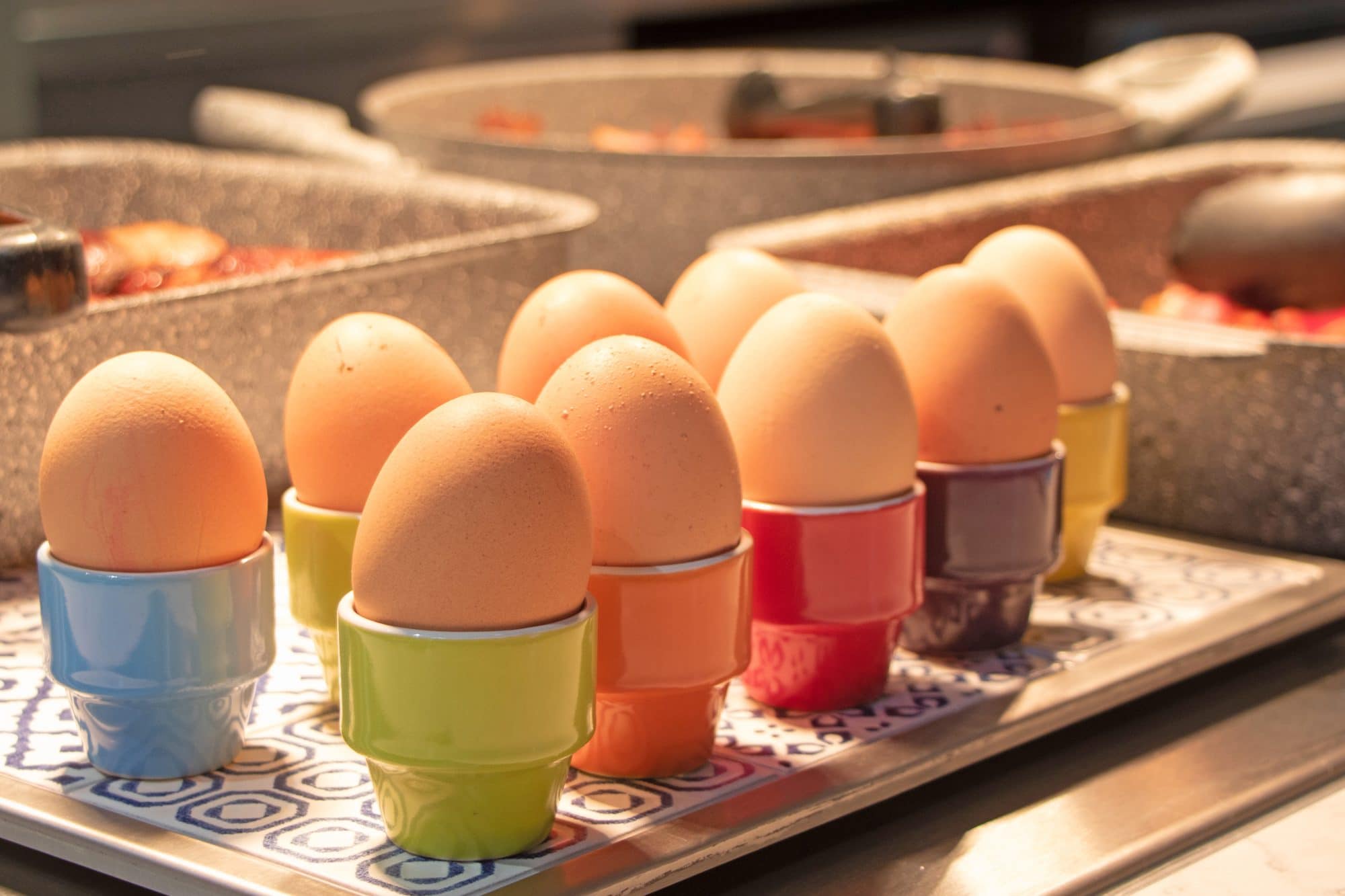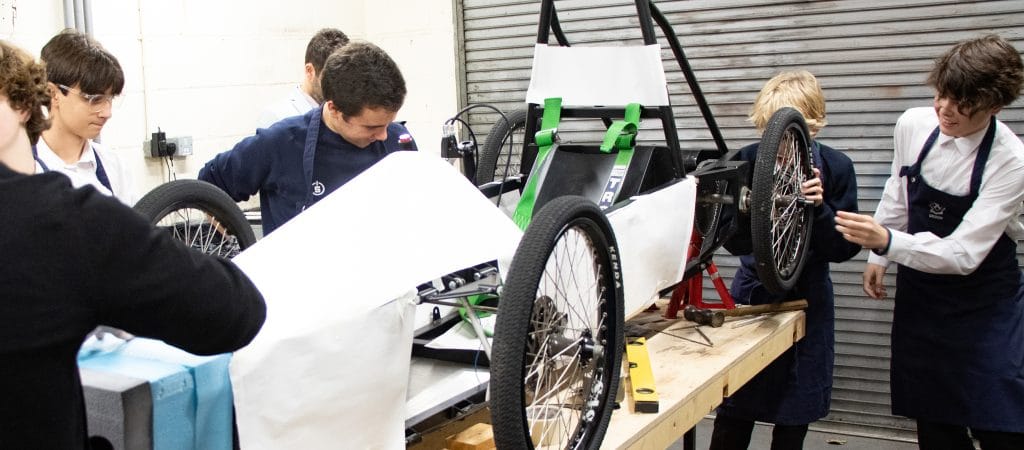ORGANIC PRODUCE
Since bringing the catering operation in-house two years ago we have built an increasingly local supply chain to acquire organic produce and now all our milk, meat, vegetables and eggs are produced within the surrounding area.
Beechwood Eggs is a family run business supplying us with eggs from just seven miles away. Fruit and vegetables are sourced from family run greengrocers, Fletchers and Fisher of Newbury, the latter sourcing from farms across Hampshire, Oxfordshire and Berkshire. Both our local butchers, Vicar’s Game and Thatcham Butchers, are also family run and source from the surrounding counties and the quality is second to none. The same can be said of our new Dairy supplier West Horsley Dairy.
We also have to be realistic. Geographically we are far from the coast but by using Gloucester based New Wave Seafood we can ensure that our fish supplies are sourced from Cornwall, one of our nearest fishing ports, and sourced sustainably.
MENU ENGINEERING
When we think about the food that we offer, seasonality is key as is our responsibility when sourcing stock, not shipping it from overseas when it is available locally. We engage heavily with the pupil body through the catering committee so that they have a say in our direction.
As we move from winter to spring, we begin to offer more variety in fish because this is the season where a lot more is caught but that will drop off after the summer. Asparagus is about to come into season so that will appear on our menus more.
Beyond seasonality we know we can still source locally. Our suppliers have warehouses full of apples from the autumn harvest and, while not in season, they are being stored and kept in the right conditions and come to us locally.
SUPPORTING THE LOCAL ECONOMY
The way we look at both organic produce and menu engineering enables us to support the local economy. We have a sizable operation which produces over half a million meals every year and our local support is two-pronged.
As an employer we provide jobs for over 600 staff located within the surrounding area but also, being in control of our supply chain means we are contributing to the local area more than we ever were before. We work with local farms and producers which in turn boosts employment within their businesses too. We are fortunate to be situated closely to Oxfordshire, Berkshire and Hampshire all of which are known for fantastic produce so to be able to support the local economies while getting quality food in return is good business.
WASTE MANAGEMENT
For us, waste management is always going to be a work in progress and it is an area in which we are engaging with pupils, educating them so that they can actively impact it. The Sixth Form, and in particular the JCR as part of their sustainability initiatives, are looking at plate waste, making sure those coming for meals only put on their plate what they are going to eat. They have been presenting to their peers to make them aware of the impact of food waste on the environment.
On the operational side we manage production waste. Through batch cooking we are able to manage demand as we move through the busy periods when each year group arrives for their mealtime.
Collectively, through our production management and the pupil-led campaign, we are aiming to reduce our food waste by an initial 10% on last year. That would help save the equivalent of 28,687 kilograms of carbon emissions every year which is a significant amount from just one school food operation.






